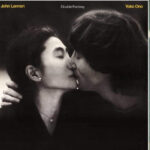Norah Jones’s mellow voice and piano chords in “Don’t Know Why” create a soundscape of gentle introspection, perfect for a contemplative mood. This song, with its repeated questioning “I don’t know why,” resonates deeply with anyone who has experienced the pangs of regret and missed opportunities. Let’s delve into the don’t know why song lyrics to understand the emotions and story woven within.
Verse by Verse Lyric Breakdown
Verse 1: Waiting and Regret
The opening lines, “I waited till I saw the sun / I don’t know why I didn’t come / I left you by the house of fun / I don’t know why I didn’t come,” immediately establish a sense of longing and confusion. The repetition of “I don’t know why I didn’t come” emphasizes the speaker’s bewilderment and self-reproach. The phrase “house of fun” hints at a place of joy and potential connection, which the speaker inexplicably avoided. This sets the stage for a narrative steeped in regret and unanswered questions.
Verse 2: Yearning for Escape
As the song progresses into the second verse, “When I saw the break of day / I wished that I could fly away / Instead of kneeling in the sand / Catching teardrops in my hand,” the feeling of helplessness intensifies. The imagery of “kneeling in the sand / Catching teardrops” paints a picture of vulnerability and sorrow. The desire to “fly away” speaks to a yearning for escape from the current emotional state, highlighting the weight of the speaker’s regret.
Chorus: Heartbreak and Lingering Memories
The chorus, though brief, is powerful: “My heart is drenched in wine / But you’ll be on my mind forever.” This metaphor of a “heart drenched in wine” suggests an attempt to numb the pain, yet the concluding line reveals the futility of this effort. The person and the missed connection remain etched in the speaker’s mind, indicating a lasting impact and unresolved feelings.
Verse 3: Despair and Isolation
Verse three, “Out across the endless sea / I would die in ecstacy / But I’ll be a bag of bones / Driving down the road alone,” takes a darker turn. The phrase “die in ecstacy” is striking, hinting at a desire for dramatic release from the pain, even in death. However, the stark reality is presented in the lines “bag of bones / Driving down the road alone,” emphasizing a future of loneliness and emptiness. This verse underscores the profound sense of isolation stemming from the speaker’s inaction.
Verse 4: Empty Repetition and Unresolved Questioning
The final verse, “Somethin’ has to make you run / I don’t know why I didn’t come / I feel as empty as a drum / I don’t know why I didn’t come,” circles back to the initial confusion and regret. The line “Somethin’ has to make you run” might suggest external pressures or internal fears that contributed to the speaker’s avoidance. The simile “empty as a drum” powerfully conveys the hollowness and lack of fulfillment resulting from the missed opportunity. The continued repetition of “I don’t know why I didn’t come” leaves the listener with a lingering sense of unresolved questioning, mirroring the speaker’s internal struggle.
Deeper Meaning and Interpretation
“Don’t Know Why” is more than just a song about regret; it’s an exploration of fear, hesitation, and the consequences of inaction. The lyrics suggest a scenario where the speaker had a chance at connection and perhaps love, symbolized by the “house of fun,” but allowed fear or uncertainty to prevent them from pursuing it. This hesitation leads to a profound sense of loss and confusion, captured in the repeated questioning of “I don’t know why.”
The song’s melancholic tone and repetitive structure effectively convey the cyclical nature of regret, where the speaker is trapped in a loop of self-questioning without resolution. The imagery of rain, tears, and emptiness further reinforces the themes of sadness and missed opportunity.
The Songwriter: Jesse Harris
While famously performed by Norah Jones, “Don’t Know Why” was written by Jesse Harris. His original version carries a similar emotional weight, showcasing the song’s inherent power to evoke feelings of longing and introspection, regardless of the performer. Norah Jones’s rendition brought the song to a wider audience, cementing its place as a classic in the realm of melancholic and introspective songs.
In conclusion, “Don’t Know Why” lyrics offer a poignant reflection on missed chances and the enduring ache of regret. The song’s beauty lies in its simplicity and emotional honesty, making it relatable to anyone who has pondered the “what ifs” of life and love.

